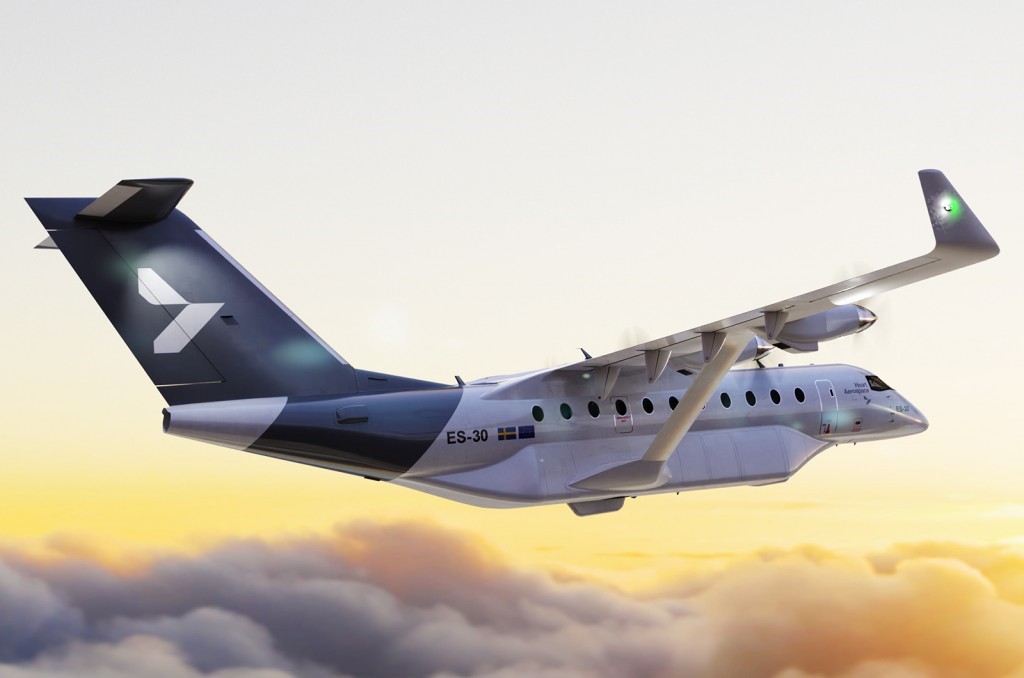Swedish engineering company Heart Aerospace to develop world’s first zero-emission flights
The heart of Scandinavia is bracing itself to receive the world's first zero-emission aviation technology developed by a group of Heart Aerospace engineers. A hangar at Gothenburg is currently housing the discovery. As Fredrik Kampfe from the Swedish Aviation Industry Group correctly puts it: "If not here, where else should be first with zero-emissions aviation?"

Sweden has set an extraordinary goal where the country is on a journey towards achieving fossil-free domestic flights by 2030. The aviation industry also aims at making each outgoing flight from the country fossil-free by 2045. This is quite a big leap for the aviation industry since, for the first time, sustainability is at the peak of everything else.
The Heart Aerospace engineers have custom-constructed an aluminium framework for the plane, which is at this moment going through various ground tests with suitable propellers and batteries. Though it is highly unlikely that this particular frame would be used for aviation, this confirms the blueprint of the prototype. The company is yet to assemble a flying prototype scheduled to be tested in 2026.
The use of aluminium might help in containing the after-life carbon emissions generated by the aeroplanes because of its infinitely recyclable qualities. Moreover, aluminium is lighter than steel, its competitor and is a preferable non-ferrous metal in the aviation sector. Moreover, its' anti-corrosive and heat resistance properties make aluminium a favourable material for making aerospace structures.
The company is currently working on a 30-passenger plane named the ES-30 that has a 200 km flight range at a stretch with one fully-charged battery. With a backup hybrid turbo generator run by aviation fuel, the flight can reach a 400 km range.
The CEO of Heart Aerospace, Anders Forslund, very transparently said: "If you want to compare electric aircraft to conventional aircraft on the range, well, we're not there yet."
"But what we can offer is low noise, zero emissions, which means that not only is it good for the climate, but also for your local environment, for the pollution near airports," he added in conversation.
Heart Aerospace doesn't have a working prototype yet but has bagged a purchase order from Air Canada to supply 30 aeroplanes. The latter has invested US$5 million in the Swedish company to secure its growth.
United Airlines and Mesa Air Group have also lent arms in support to the company as they've placed orders for over 200 aircraft from Heart Aerospace. This step might strengthen the position of the Swedish aerospace expert in the global market.
Guilherme Albuquerque, a person, working to ensure aircraft systems integration, wisely commented: "It's very expensive to do tests or to make mistakes in the prototype because all the parts in the prototype are aeronautical parts. Here, it's not."
Fredrik Kampfe from the Swedish Aviation Industry Group concluded his statement by saying: "We also have a market in Scandinavia and a geography that simply fits very well. In northern Norway, we have these short routes of maybe 14, 15 minutes, up to 20 minutes between airports - that will be a perfect first market".
The Scandinavian region in Europe is rich with renewable energies in the form of the hydropower-yielding source in Norway; therefore, it is no wonder that the first development of fossil-free flight would occur here. Plus, the area requires short-flight protocols, making these fossil-free flights suitable for the region as they can only cover small distances.
This news is also available on our App 'AlCircle News' Android | iOS












.png/0/0)






